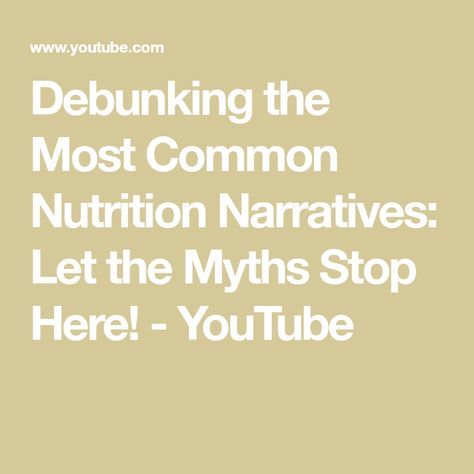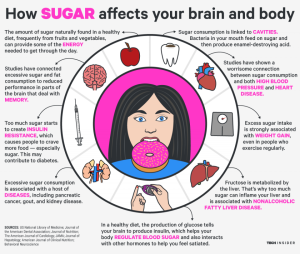
When it comes to nutrition, there is an abundance of information available, but not all of it is accurate. In fact, there are several common nutrition myths that have perpetuated for years. In this article, we will debunk some of these myths and provide you with the facts backed by scientific evidence.
Myth 1: Fat is always bad for you
Contrary to popular belief, not all fats are unhealthy. While it is true that some fats can increase the risk of certain health issues, such as heart disease, others are essential for optimal body function. Unsaturated fats found in nuts, avocados, and olive oil are considered healthy and can actually help improve heart health when consumed in moderation.
Myth 2: Carbohydrates should be avoided
Carbohydrates often have a bad reputation, especially in the world of weight loss. However, not all carbohydrates are created equal. Whole-grain foods, fruits, and vegetables are excellent sources of complex carbohydrates that provide essential nutrients, fiber, and energy. They should be a part of a balanced diet and not completely avoided.
Myth 3: Eggs are bad for your heart
For years, eggs have been demonized due to their high cholesterol content. However, numerous studies have now shown that dietary cholesterol does not have a significant impact on blood cholesterol levels for most people. In fact, eggs are a nutritious food rich in protein, vitamins, and minerals. As long as you don’t have any underlying health conditions, consuming eggs in moderation is perfectly fine.
Myth 4: All calories are equal
While it is true that weight management generally boils down to calories in versus calories out, not all calories are equal in terms of nutritional content. For example, a calorie from a processed sugar-rich snack will not provide your body with the same essential nutrients as a calorie from a piece of fresh fruit. It is important to focus on the quality of calories consumed rather than just the quantity.
Myth 5: Supplements can replace a healthy diet
Supplements can be beneficial in certain cases, but they should not be viewed as a replacement for a healthy and balanced diet. Whole, nutrient-dense foods provide a wide range of vitamins, minerals, and other beneficial compounds that cannot be replicated by supplements alone. It is always best to obtain nutrients through whole foods whenever possible.
Conclusion
It’s crucial to separate fact from fiction when it comes to nutrition. Many common myths have misled people and caused unnecessary dietary restrictions. By debunking these myths and relying on evidence-based information, we can make informed choices about our diets and improve our overall health and wellbeing.

